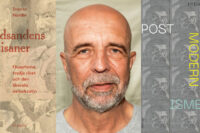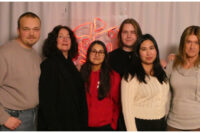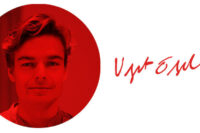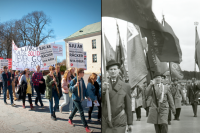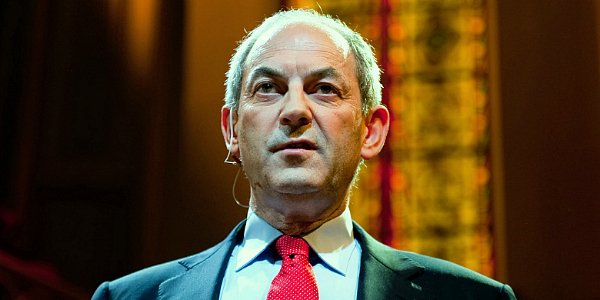
”Yes we Cohen!” That was how the Dutch Labour Party (Partij van de Arbeid, or PvdA) greeted the election of the universally popular mayor of Amsterdam, Job Cohen, as its new leader in the spring of 2010. On Monday 20 February, after less than two years in the post, with the party more than halved in the opinion polls and a revolt brewing in his parliamentary party, Cohen resigned, blaming the ”political and media reality of the Hague” for scuppering his mission to contribute to a more decent society.
The Dutch political scene certainly isn’t what it used to be. Parliamentary language has got rougher, policy fights have become more personal, sections of the media are out of control. For Cohen, who is better at building bridges than at throwing bricks, the required transition from thoughtful, non-partisan and widely respected Mayor of the country’s capital to tough-talking, mud-slinging, dirt-ducking leader of the opposition proved a bridge too far. But it would be unfair, not least to other politicians, to blame Cohen’s demise solely or even largely on the lack of political table manners in the Hague.
First, the PvdA lacked a coherent parliamentary strategy. Forced into opposition following the 2010 elections, which the party lost unexpectedly, Cohen alternated between attacking the minority rightwing government for relying on the support of the far-right Freedom Party, and backing that same government on key votes when the Freedom Party failed to do so – thus allowing it to stay in office. The result was a frustrated parliamentary party and a confused electorate.
Second, Cohen failed to formulate a response to the populist insurgency of the far left and right. Geert Wilders’ Freedom Party and Emile Roemer’s Socialist Party are eating into the PvdA’s traditional supporter base. At the same time, party elites are voting with their feet and defecting to the left-liberal D66 and the GreenLeft, seen by many as modern and more effective alternatives to Labour. Faced with a stand-off between traditionalists and modernisers, Cohen responded by trying to keep everyone happy – resulting in a further loss of support and credibility.
It would of course be wrong to blame Cohen for all the PvdA’s recent woes. Like other European social democratic parties, the Dutch Labour Party has struggled to adapt to the reality of a new political and electoral landscape. In May 2011 Cohen shared a stage in Oslo with two other newly elected social democratic leaders: the UK’s Ed Miliband, and Sweden’s Håkan Juholt. Juholt resigned last month; Miliband is fighting for his political life. In France, François Hollande’s meteoric rise in the polls is reminiscent of Cohen’s rapid ascent in the spring of 2010; Hollande, too, will have his work cut out to make sure his personal popularity translates into long-term success for his party.
So where does the PvdA go from here? In the next few weeks the party will elect a new leader. So far, four candidates have put themselves forward: Martijn van Dam, a 34-year old but experienced MP who is calling for a ”New PvdA”; Diederik Samsom, a former Greenpeace activist and clean energy producer who advocates closer ties with parties on the left; Ronald Plasterk, the elder statesman of the four, a scientist-turned-politician who was education minister under Wouter Bos and is now the party’s chief treasury spokesman; and Nebahat Albayrak, the party’s unofficial number two, the only woman in the race, a former junior justice minister of Turkish origin who tends to shun the limelight.
More candidates could follow before Tuesday’s deadline. Following a short campaign, a membership ballot will be held in which all 54 000 party members can cast their vote. The result will be announced on 16 March; on 17 March the new leader will be installed at a special party conference.
That, in a sense, is the easy bit. Once the election is out of the way, the new leader will have two main items on his or her to-do list.
The first is to develop an effective and credible strategy for dealing with the Rutte minority government. Labour members and voters no longer want their party to prop up a government which relies on the support of a xenophobic, far-right party. At the same time, the new leader must be careful to extract the party from its current predicament without jeopardising its reputation as a reliable and responsible potential party of government. With the government about to announce new spending cuts to comply with eurozone budget rules, there is little time to waste.
Second in the new leader’s inbox is the question of how to reconnect with the hundreds of thousands of voters who have deserted the party, and more importantly, how to connect with a new generation of voters for whom party loyalty is a meaningless concept. For too long now, the PvdA has relied on its past achievements to win the backing of new supporters. If it wants to remain a force to be reckoned with, it will have to think of something new and convincing to say, and to learn to say it well.
In accordance with party rules, whoever is elected leader in a few weeks’ time faces a new membership ballot when the next general election is called. At that point, candidates from outside the parliamentary party can also put themselves forward. Lodewijk Asscher, the highly successful deputy Mayor of Amsterdam and a rising star in the party, has often been tipped as the party’s next leader. He will have to sit out this race.
The challenge for whoever is elected will be to show that the parliamentary party no longer needs an outside saviour to revive its fortunes. The mere prospect of such a challenge should be enough to keep the next PvdA leader on his or her toes.
Michiel van Hulten is an independent consultant based in Brussels. He is a former Chair of the Dutch Labour Party and a former Vice Chair of Policy Network.
Dagens Arena publicerar texten i samarbete med tankesmedjan Policy Network, som även har ett ”Socialdemokratiskt Observatorium” där du kan läsa fler lägesrapporter om Europas progressiva partier samt inlägg i olika sakfrågor.
Följ Dagens Arena på Facebook och Twitter, och prenumerera på vårt nyhetsbrev för att ta del av granskande journalistik, nyheter, opinion och fördjupning.






